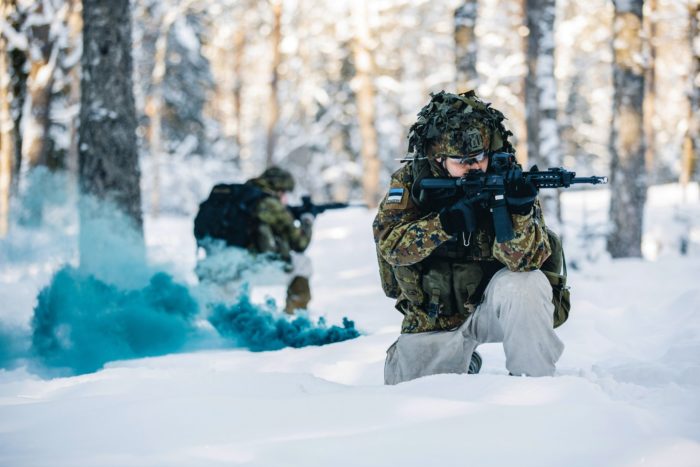The Estonian Ministry of Defence (MoD) has published a paper that intends to break common myths about Russia’s invasion of Ukraine that could lead Ukraine’s allies to the wrong strategic conclusions and provides a way forward for NATO.
The MoD asserts that although Russia’s current efforts focus on its invasion of Ukraine, President Vladimir Putin’s larger objective remains unchanged. In Russia’s view, success in Ukraine serves as a major stepping stone for reaching its long-term strategic goal of dissolving the rules-based world order.
This objective should not surprise Ukraine’s Western partners, Putin has written and talked about this for the past 15 years and his words have manifested into action in its neighboring countries. For Russia, the key steps to turning the current international order around are re-establishing spheres of influence in Eastern Europe and recreating buffer zones.
The MoD states that as long as Russia maintains its long-term goals, “it will remain the most dangerous threat for Euro-Atlantic security,” and unless Russia is “utterly defeated in Ukraine, there is no reason to expect its strategic objectives to change.”
Estonia dispels six widespread myths about Russia's invasion of Ukraine
The ongoing invasion of Ukraine has given rise to six misinterpretations about Russia’s future path and ambitions, Estonia's Defense Ministry states.
1. It's not Putin's war
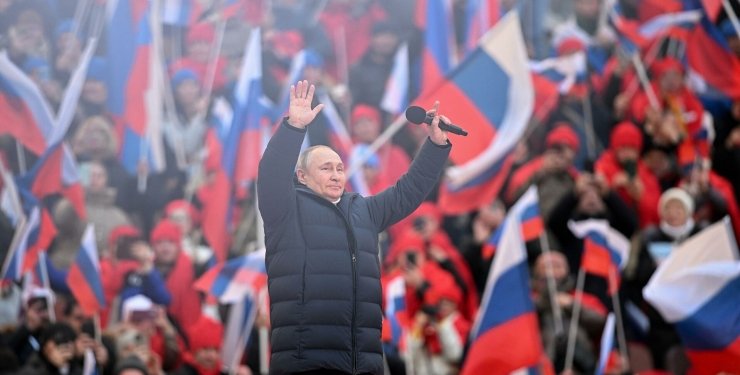
Credit: ria.ru
The first myth relates to the often touted phrase “Putin’s War.” As soon as tanks rolled into Ukraine, Western leaders were quick to condemn the invasion, and protestors mobilized across European capitals, referring to the aggression against Ukraine as “Putin’s War.” Putin, who has de facto autocratic powers in Russia, is portrayed as the sole decision-maker behind the war plans and that responsibility lies solely with him.
The myth ignores the widespread literature about how autocrats are legitimized and how they are not as free to do as they please and must rely on support from the general population.
Along with the invasion, public approval of Putin’s actions among Russia’s populace spiked to a seven-year high in March (83%) and remains so (81% recorded in December 2022) despite Western sanctions slowly asphyxiating the Russian economy. Similar ratings are observed in the public assessment of Russia’s general direction being the right one, which jumped to 69% - the highest recorded since 1996. The vast majority of the population agrees that the war is necessary and just, with 71% agreeing with the actions of the Russian armed forces.
The figures are telling, even if we accept the limitations of public opinion surveys in Russia. The imperialist mindset is historically rooted in Russia and the general populace. Despite Russian imperialism having manifested itself in many forms throughout Russia’s history, the empire state of mind at the heart of it has remained unchanged.
Starting with Putin’s rise to power in 2000, the state’s propaganda machine peddled a narrative that the West aimed to destroy Russia. The narrative claimed that Russia has to defend its natural resources, traditional values, and even its entire existence from the morally degenerate West.
The confrontation has been enforced by parallels between Putin’s actions and events of the past, often distorting or falsifying historical facts. One such chapter – Putin openly attacking Ukraine’s status as a nation and a legitimate country, denying centuries of historical events along the way – preceded the current invasion of Ukraine.
All forms of domestic resistance have been suppressed over the last two decades, with the regime successfully hacking away at the remnants of opposition and civil society. Heavily state-controlled media, intense propaganda, and limited access to outside information have made aligning with the prevailing opinion easy.
While many observers viewed Putin’s announcement of mobilization as a sign of weakness and desperation, the Estonian MoD argues it should instead “be seen as proof of the strength of Russia’s political leadership, its almost religious conviction that it can obtain its goals, and a willingness to sacrifice for them.”
Although the announcement led to some street protests and around 300,000 men fleeing Russia, the scale was insignificant for a country of 145 million people.
The MoD argues that contrary to leading to greater social discontent, drafting 300,000 men is likely to increase the number of families who genuinely consider the war “their war.” Accordingly, should these men die on the battlefield, it will be the Ukrainians, along with their Western allies, who are put to blame for their deaths, not Putin. The MoD asserts, "Even if Putin were stopped, the next man in line would not be any different, because Russia is not any different.”
2. Any Russian territorial gains move it closer to its strategic goal
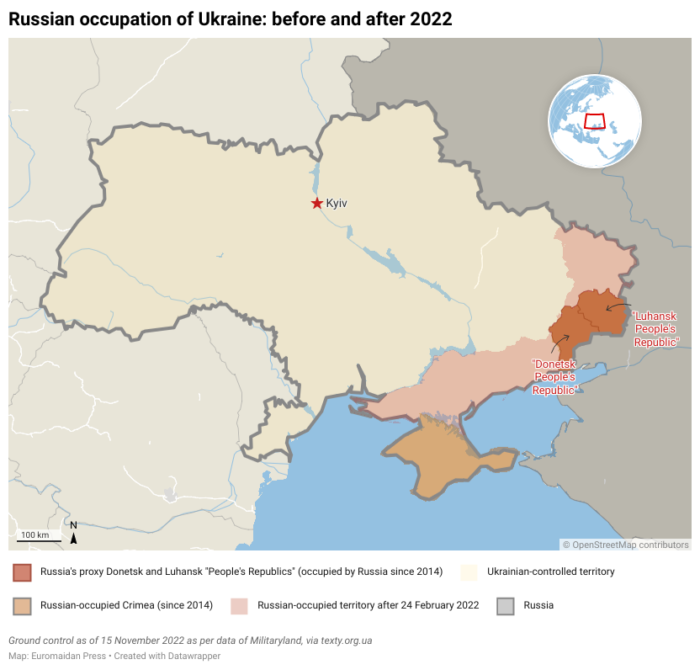
The second myth relates to claims that Russia’s invasion of Ukraine has been a strategic failure.
Ukraine’s defiant response to Russia’s invasion and Russia’s own failures to achieve its “three-day special military operation” has left Russia humiliated and its image as the world’s second-strongest army in ruins. The MoD states, “This combination quickly resulted in triumphal declarations of Russia and its actions having become a strategic failure [and] however appealing it may sound, it is premature to declare winners and losers.”
Ukraine has achieved remarkable and encouraging successes on the frontlines, yet Russia still occupies 18% of its territory. Since the Kharkiv counteroffensive in September [and the Kherson offensive in November - Ed], progress on the battlefield has been piecemeal from both sides.
The MoD says that “should Russia manage to gain any territory as a result of this war – either de jure at a negotiation table or de facto by freezing the situation in its current state, keeping occupied areas under its authority for a longer time – it will have essentially moved closer to its goal [and] the Kremlin will have demonstrated that altering national borders with military force is feasible and the West and its rules-based world order can be weakened.”
Sombrely reflecting on the past, the MoD notes, “political concessions are only a fast track to another “special military operation,” possibly against Allied countries. If it works, why stop?” As Russia’s past military endeavors in its so-called “near abroad” have shown, frozen conflicts are its comfort zone and modus operandi, and reversing territorial gains is incomparably more challenging than reconsidering policies or easing sanctions.
3. Russia is not disqualified as a threat
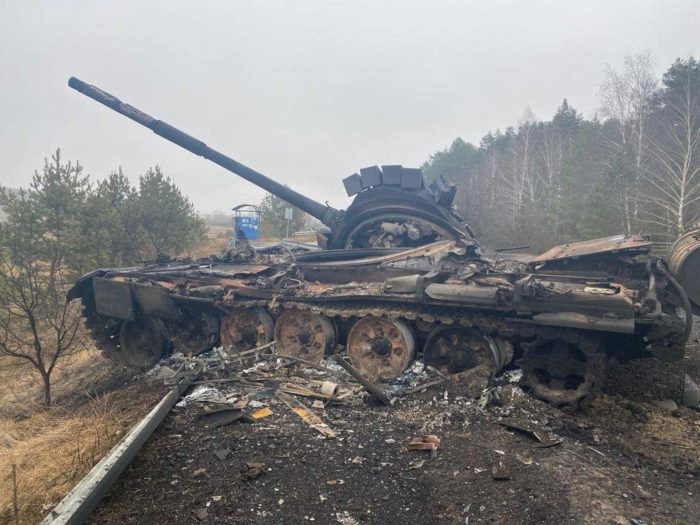
The third myth relates to the perception that Russia is militarily and strategically weakened enough to eliminate Russia as a threat for years to come.
As a result of the catastrophic losses Russia has suffered on the battlefield, a popular opinion of a weak Russia, enough to disqualify it as a threat for a long time, has started to gain ground. Estimates vary, but Russia’s killed and wounded casualties run anywhere between 100,000 and 180,000. Its equipment and military hardware losses are equally as devastating, with estimates suggesting Russia has lost 40% of its pre-war fleet of tanks.
However, the MoD argues that “these costs matter very little” and that for Russia, the “ends justify the means, and the price tag has not been high enough.” While for a democratic country, such losses would be an unbearable tragedy, for Russia, a country with an estimated 30 million men in mobilization reserve, these figures are a mere statistic that can be written off as a necessary cost.
Russia doubled its invasion force in September 2022 compared to the initial force used in February 2022. Meanwhile, Russia’s storages hold huge amounts of usable Soviet-era weapon systems that, although not modern and inferior to weapons systems supplied to Ukraine, remain capable and dangerous. Although Russia has lost an estimated 40% and 20% in tanks and armored vehicles, respectively, in storage, Russia still has an estimated 10,000 tanks and 36,000 armored vehicles, and the MoD claims that a third can be reconditioned, adding at least 3,000 tanks and 12,000 armored vehicles to the front line.
For scale, Germany has around 250 Leopard-2 battle tanks, while Estonia has none.
Similarly, losses in artillery thus far are a mere 10% of the 5,000 combat-ready systems Russia had before the invasion, and ammunition stocks remain at seven million units, allowing Russia to continue the war with the same intensity until at least mid-2023. This estimate is continuously increasing as production rates increase, and Russia is resorting to belligerent states such as Iran and North Korea to prop up its munition supplies. Russia has lost less than 10% of its air assets which is too little to affect combat capability.
The MoD states, "it is imprudent to belittle Russia’s military might, especially when no NATO European ally could individually match the warfighting brigades needed to defend against and defeat Russia.”
Despite the damage already inflicted, Russia’s military capability will continue to be its highest priority – rebuilding and rearming stands above any other expense, and its economy is being restructured accordingly.
Its defense budget for 2023 makes up a third of the entire national budget, and in December 2022, Putin announced there would be no limitations in financing the military. In addition, Russia’s defense industry is picking up the pace, with small arms production rates already on a 40% rise. Although the West stresses the role of international sanctions in constraining Russia’s ability to re-arm, the “scope remains limited and priorities unaltered [and] Russia is actively looking for ways to work around sanctions and will most likely succeed.”
North Korea and Iran, for example, have been sanctioned for decades and yet have successfully developed nuclear technology, produced a wide array of high-precision weaponry, and performed ballistic missile tests. There is no reason for Russia not to follow suit despite sanctions. Russia will continue to purchase dual-use goods from Iran, North Korea, and China, who view “supporting Russia as a useful measure for exhausting the West’s political attention and resources,” according to the MoD.
4. NATO's deterrence of Russia has not been a success
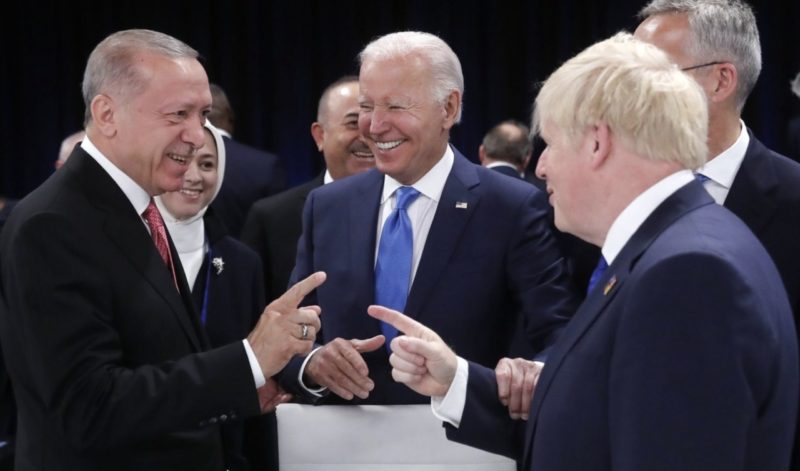
The fourth myth, that NATO deterrence of Russia has been a success, is also misleading. The argument proceeds that since Russia has not escalated the war against NATO or its allies, NATO’s deterrence posturing remains credible. However, the MoD claims that “security demands Russia presented to the US and NATO in December 2021 give plenty of reason for continued concern.”
The document, which was a de facto proposal for a new security architecture at the expense of Eastern Europe, predominantly discussed taking NATO back to 1997. Russia has not backed down from these demands and continues to repeat them. The MoD suggests that the “seriousness of these demands have been reflected in the military domain,” with Russia regularly hosting military exercises simulating attacks against NATO allies.
Although “Putin can be considered a rational actor who miscalculated significantly, the Russian viewpoint of a rational actor also differs from the Western one [and] Russia’s actions over the past year would not qualify as rational behavior for any Western state.” Fundamentally, perceived rationality matters little when it is accompanied by a readiness to pursue hostile goals by military means.
Moreover, Russia’s rhetoric in the media and society has grown increasingly aggressive, with Putin’s inner circle growing ever more concentrated with highly belligerent individuals. The MoD expects that “instead of de-escalation, it is far more likely that Russia will become even more hostile and escalatory in the coming years” and with its strategic aims unchanged, the risk to NATO’s eastern flank is growing.
The MoD concludes, "The combination of Russia’s strategic objectives, risk tolerance, and susceptibility for miscalculation underlines how dangerous Russia’s threat is for NATO. As long as any gaps of hope or opportunity remain for Russia, Allied deterrence has grounds to improve.”
5. Fears of Russia's retaliatory escalation are unfounded and confine the West, says Estonia
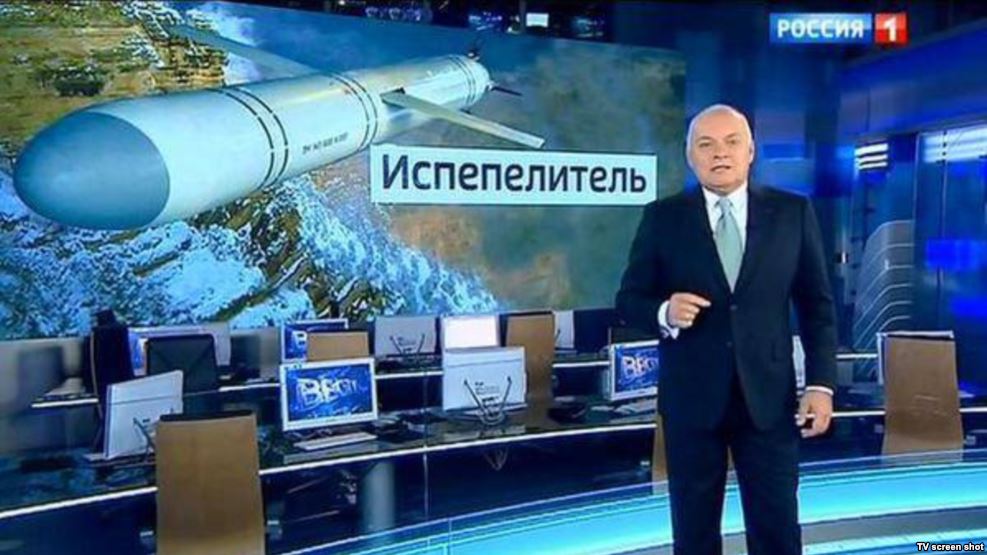
The final myth, that the West’s collective actions against Russia leave it with no choice but to escalate, is false. When the war began, any military aid to Ukraine was deemed as escalatory by Russia, enough to make Russia consider any NATO country an appropriate target. Russia set “red lines” continuously throughout the duration of the conflict, and it warned Ukraine’s allies that these lines should not be crossed; otherwise, NATO countries would face catastrophic consequences.
However, support packages to Ukraine gradually grew from light anti-tank weapons to more advanced systems such as HIMARS and NASAMS, followed by decisions to deliver Patriots and modern armored combat vehicles and more recently, Western tanks while momentum grows for Western fighter jets.
The MoD notes that although with “While each respective announcement still brings about a fear of triggering ‘uncontrollable escalation,’ there is very little substantiated evidence for it on the ground.” Western military assistance in support of Ukraine has not been escalatory – “Russia does not need any game-changing decisions from the West or Ukraine as a basis of escalatory retaliation” the MoD says, “Russia escalates when it deems the means necessary for its objectives.”
The danger in discussing Western aid as ‘escalatory’ lies in the fact that it allows Russia to not only control escalation, but also the West’s strategy. The MoD suggests, “Western sensibility grants Russia a deliberate choice of when to push on the alleged ‘red lines’ and nuclear rhetoric. War, however, has demonstrated that the fear of escalation is unnecessarily high.”
The MoD stresses that scenarios of Russia’s tactical losses are systematically amplified with excessive concern for Russia’s nuclear escalation, and “in fact, we have repeatedly witnessed that Russia considers conventional retreat acceptable and that nuclear rhetoric can also be muted with firm strategic messaging.”
Continuing to slowly drip-feed Ukraine military aid over a long period of time in small quantities while carefully calculating each step and blunting Russia’s capabilities “creates a false premise for a successful strategy.” Instead, the MoD states the “war is merely dragged out with an immense cost, primarily for Ukraine.” Going forward, NATO and its allies “must strive to refrain from paralyzing self-deterrence and excessive fear of escalation."
Strategic lessons learned from Russia's invasion
With the myths out of the way, the Estonian Ministry of Defence presents five strategic lessons from the war.
1. NATO requires more deterrence than previously thought and needs it urgently. The MoD states that the only way “to prevent a Ukrainian scenario on NATO’s soil is to make it clear beyond doubt that any aggression against NATO would be a dead-end attempt.” NATO must focus on significantly reducing the risk of miscalculation by Russia of allies’ commitment to, and military capability required for, effective collective defense. The MoD says that “Russia will only refrain from testing NATO in case it is absolutely certain that the objectives it seeks bear an unacceptable cost for the Kremlin,” adding, "It is our objective to ensure that a severe defeat at an immense price is the only scenario.”
2. NATO needs better intelligence and readiness. “Should our deterrence messaging fail to reach the intended recipient or not shake up its offensive plans, we will need to know – the earlier, the better,” says the MoD. It adds that NATO must improve its “intelligence and early warning and normalize scenario-based discussions, war games, and readiness exercises in NATO.”
3. Third, allied leaders’ reaffirmation of their commitment to defend every inch of NATO territory needs to translate into true readiness in terms of mindset and operational activities.
4. Next, the MoD notes, "A lack of resources undermines our security and defense in the long-term. We need robust military capabilities to defend the Euro-Atlantic area, which only increased defense investment could provide.”
5. Finally, the MoD stresses that capabilities and stockpiles are only part of the equation and that NATO also requires “capable, well-trained forces and reserves, who could secure Allied success on the battlefield; and resilient societies with a strong spirit and will to defend our democratic values.”
https://twitter.com/EuromaidanPress/status/1630632675433414658?
The MoD concludes its paper, proclaiming that “there is no turning back to a pre-24 February 2022 world” – a fact made ever more evident by the arrival of President Joe Biden to Kyiv on 20 February 2023. NATO must be ready, and the plan is simple:
- NATO must complete the strategic shift from deterrence by punishment to deterrence by denial;
- NATO must become a more rapid, more capable, and more resilient Alliance;
- NATO must invest in defense, now.
 Klaidas Kazak is a British civil servant and a graduate of the School of Slavonic and East European Studies at University College London.
Klaidas Kazak is a British civil servant and a graduate of the School of Slavonic and East European Studies at University College London.
Related:
- Russia had a secret plan to wipe Ukraine off the face of the Earth. This report tells why it failed
- Are the sanctions on Russia working?
- Russian imperialism: Only a bare majority of Russians wants Russia to stay within its current borders (2015)
- Russian ideology: imperialism, militarism, and racism
- Russian war against Ukraine neocolonial in nature – Polish President Duda
- For sustainable peace, all Russians must face their crimes – Estonian PM
- Only restoring Ukraine’s nuclear status can be an alternative to its NATO membership – Estonia’s Foreign Minister
- Estonian group ships medical supplies to Ukraine: “I did not want to just sit back and watch”

